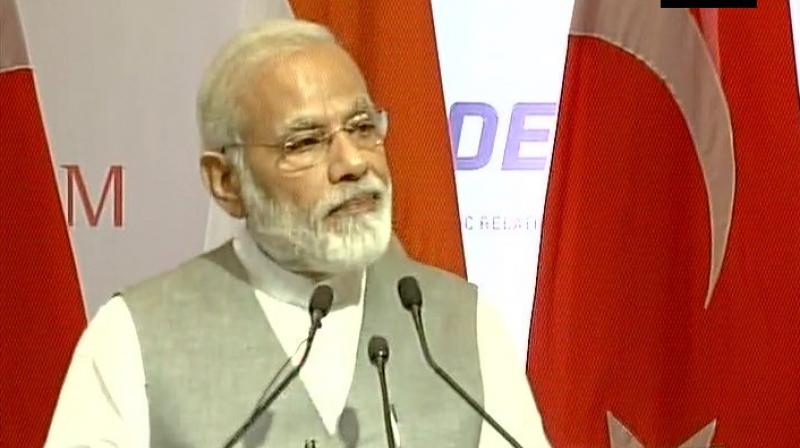Launch of satellite 'historic moment', opens up new horizons of engagement: PM
The satellite took off from the second launch pad of the Satish Dhawan Space Centre at Sriharikota at 4.57 pm today.

New Delhi: Prime Minister Narendra Modi on Friday hailed the successful launch of the South Asian Satellite GSAT-9 as a ‘historic moment’, and said that it had opened up new horizons of engagement between South Asian countries.
“I congratulate the team of scientists who worked hard for the successful launch of South Asia Satellite. We are very proud of them,” he said.
"We extend our close links into Outer Space. Grateful to fellow leaders from Afghanistan, Bangladesh, Bhutan, Nepal, Maldives and Sri Lanka for joining me to celebrate this launch. Our coming together is a sign of our unshakeable resolve to place the needs of our peoples in the forefront. Through this we will achieve effective communication, better governance, better banking services and better education in remote areas," he added.
He further said that space technology will touch the lives of the people in the region.
"The ISRO team has led from the front in developing the South Asia Satellite as per the regions' requirements and flawlessly launching it. Convinced that when we join hands and mutually share fruits of knowledge, technology and growth, we can speed up development and prosperity," the 66-year-old PM said.
Indian Space Research Organisation (ISRO) on Friday launched the South Asia Satellite (GSAT-9) into space.
The Geosynchronous Satellite Launch Vehicle (GSLV) F-09 carrying the communication and broadcasting satellite took off from the second launch pad of the Satish Dhawan Space Centre at Sriharikota at 4.57 p.m.
Prime Minister Narendra Modi in his recent radio address to the nation 'Mann Ki Baat' had said the South Asia Satellite is India's gift to the region, which will go a long way in addressing the economic and development priorities of the nations in the region.
Six of India's neighbours including Afghanistan, Bangladesh, Bhutan, Nepal, Srilanka and the Maldives participated in the space-based regional communication project.
Pakistan had refused to join the project, after which the satellite's name was changed from 'SAARC Satellite' to 'South Asia Satellite'.
The satellite weighing 2230 kilograms during lift off and carrying 12 Ku-Band transponders has been developed at a cost of about 235-crore rupees. The total cost of the project including the launch is worked out to be about 450-crore rupees.
The intended operational life of the satellite is more than 12 years and it cost Rs 235 crore.

